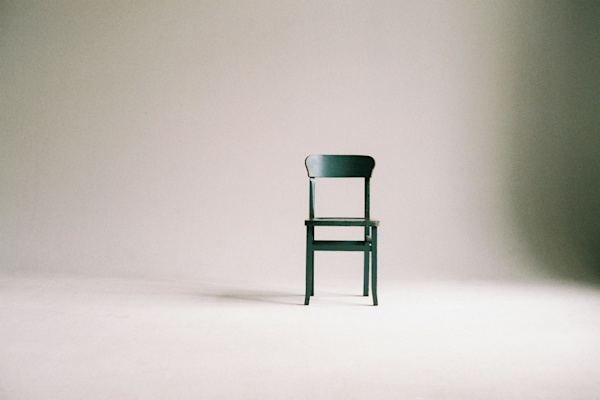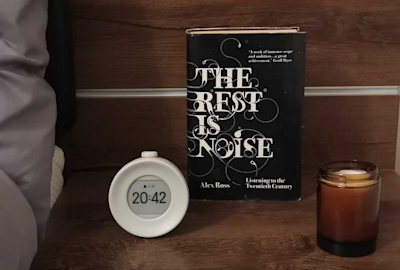
What Other Countries Can Teach Us About Minimalism
Embracing Simplicity
Imagine a world where the endless temptation of consumerism fades into a background, where the frantic pursuit of accumulation gives way to a more thoughtful approach to living.
This isn't a utopian fantasy. It's actually a reality being embraced by diverse cultures around the globe, each offering a unique blueprint for a life well-lived through minimalism and essentialism.
Mudita Bell Classic Alarm Clock
That's right. Numerous societies worldwide have deeply rooted customs focused on paring down and streamlining possessions.
READ: Essentialism vs. Minimalism: Paths to an Intentional Life
In a world that is increasingly complex, many people are discovering that the secret to a richer life lies not in what we accumulate but rather in what we choose to focus on and cherish.
From the cobblestone alleys of Europe to the bustling markets of Asia, minimalism is emerging not just as a lifestyle choice, but as a profound cultural movement that challenges the very foundations of our relationship with material possessions.
At Mudita, we believe that the key to happiness lies in simplicity. We are inspired by the idea of living with less, and we want to help you do the same. Our mission is to create products that are beautiful, functional and sustainable so that you can enjoy a more meaningful life.
In this exploration, we delve deep into the heart of different cultures to uncover the timeless wisdom and modern expressions of minimalism that transcend borders.
Join us as we explore how simplicity is being redefined worldwide and how companies like Mudita are pioneering this shift with products that embody the essence of mindful technology.
Sustainability and the Culture of Repair
In many places outside western culture, the impulse to replace a broken or outdated item is not as prevalent. In countries like Mexico, fixing an item is often the first recourse rather than purchasing a new one. This approach not only reflects economic necessity, but also a deep-seated respect for the environment and the resources it offers. Such sustainable practices are foundational in reducing waste and promoting a minimalist lifestyle that values what is already at hand.
The culture of repair is also a reflection of the way we view our possessions. In western culture, many people see their belongings as disposable and replaceable. This mindset is reinforced by the constant stream of new products that are introduced into the market each year.
Europe: The Art of Understated Luxury
Europeans have a knack for elegant minimalism. In countries like Germany and Sweden (I think we’re all familiar with IKEA), minimalism manifests through functional design and sustainable living. For instance, the concept of Lagom in Sweden—which translates to "just the right amount"—encourages people to live a balanced life that's economically and ecologically sustainable. It's about finding contentment in simplicity and balance rather than in excess.
This ethos is embedded in everyday life, from fashion to furniture, suggesting that true luxury lies in quality, not quantity. It's a theme that resonates deeply with the philosophy of companies like Mudita, whose mindful tech products are designed to enhance life without cluttering it.
Asia: Tradition Meets Contemporary Minimalism
In Japan, the principle of Ma—the respect for empty space—permeates through all aspects of life, from art and architecture to daily living. This concept teaches that beauty and usefulness do not stem from abundance but from the purposeful use of space, both physically and metaphorically.
Similarly, in India, the tradition of minimalism is often connected to spiritual and practical living, where material possessions are viewed as temporary and not to be overly attached to. This approach is not about the absence of items but about the presence of peace and purpose.
Africa: Community-Oriented Consumption
In many African cultures, minimalism is less about individual simplicity and more about communal sharing. The focus is on what you can contribute to the community rather than what you can accumulate personally.
This approach to minimalism is rooted in the belief that we are all interconnected and that our actions have an impact on others. That's why this perspective shifts the emphasis from personal possessions to personal relationships, aligning closely with the minimalist principle that 'less is more'—especially when it comes to material wealth.
Latin America: Vibrant Simplicity
Latin American minimalism often bursts with color and life. It's not about stark, empty spaces, but more about an exuberant simplicity that finds joy in the everyday. Additionally, minimalism often manifests through a deep connection to nature and the environment, emphasizing living in harmony with the natural world.
Homes are often small and possessions few, yet the culture is rich in family, food, and festivity. This shows that minimalism isn’t about giving up joy but finding joy in more meaningful and sustainable ways.
North America: Redefining Success and Challenging Consumerism
In North America, while the region benefits from exceptional logistical networks and entrepreneurial creativity, this luxury comes at the expense of substantial waste. The convenience of rapid delivery for practically any item is a standard expectation, with the majority of consumers often indifferent to the extra cost associated with the swift, trouble-free service, and the allure of brand-new products.
We can’t tell you how many messages we’ve answered which had questions about ‘why does Mudita charge for international shipping?” We know free shipping HAS CHANGED the way people shop. Since, megaretailers like Amazon started offering free shipping, it changed what consumers expect when shopping online. However, it also changed how retailers hide the costs of delivery, in order for you to buy more and fueling the culture of consumerism.
However, slowly North American consumerism culture is starting to change and this is a good thing. It means that people are becoming more aware of the true cost of products and services, and they’re starting to make more informed decisions about what they buy.
More and more people are now seeking to define success on their own terms, prioritizing experiences over possessions, a sentiment that is beautifully encapsulated in Mudita’s ethos.
Mudita's products, like our minimalist phones, and mindful alarm clocks, encourage users to disconnect from needless distractions and reconnect with what's truly important.
A Global Mosaic of Minimalist Traditions
As we explore these diverse approaches to minimalism, we find that they all share a common goal: the pursuit of a life not defined by possessions but by values, experiences, and connections. We see that each culture brings its unique flavor to minimalism, yet they all echo the same truth: that happiness and fulfillment stem from simplicity and mindfulness.
That's why, at Mudita, we believe that we are at the forefront of this movement, creating products that embody the essence of minimalism and essentialism.
And our community, by choosing to invest in such products, they're not just buying a tool; we're embracing a philosophy that enriches their lives and soothes their spirits.
In a world that often values more over less, these global insights remind us of the profound beauty in simplicity.
These values invite us to rethink our choices and to embrace a life that's not about having everything, but more about having what truly matters.
As we continue on our minimalist journeys, let's carry with us the wisdom of the world, crafting spaces and lives that reflect the truest forms of abundance.
Related stories

Mudita’s Community-Curated Wintertime Reading List
Slow down this winter with our community-curated reading list from the Mudita Forum Community, featuring books on well-being, focus, simplicity & mindful tech.

Mudita Radiant Earns Kickstarter’s “Project We Love” Badge
Mudita Radiant earns Kickstarter’s “Project We Love” badge after being fully funded in just two hours. Discover our Swiss automatic field watch.

Essentialism vs. Minimalism: Paths to an Intentional Life
Learn about the distinct, yet complementary paths of essentialism & minimalism towards leading a more intentional life.
If you'd like to receive the best stories from our blog, keep up to date with our progress and get notified about our product releases and special discounts.